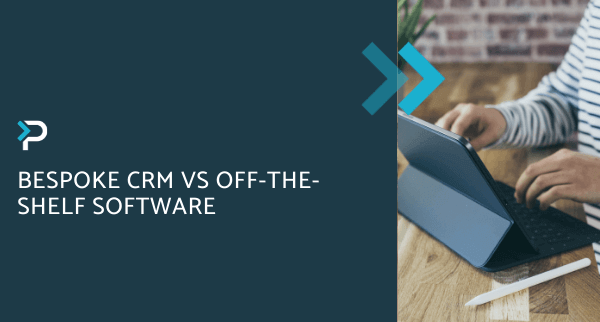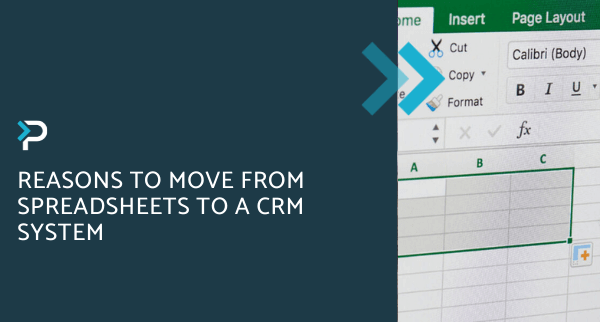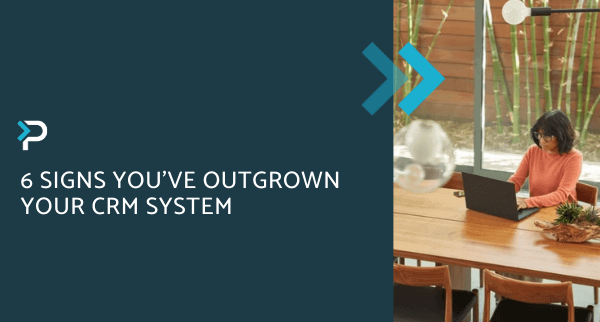Myth vs Facts: CRM

Myth One: Using a CRM System requires technical knowledge
Fact: The short answer is no. The likelihood is your staff are familiar and very accustomed to embracing new technology within their everyday life; therefore, learning to use a new CRM, with the right guidance and training shouldn’t be difficult. Some CRM systems are more intuitive than others, which is worth bearing in mind when choosing. Due to Dynamics 365 being a Microsoft product, if your users are already familiar with other Microsoft products such as; Excel, Word and Outlook, the transition to using it shouldn’t be too difficult. Here are a few other things to research when considering the ease of use:
- Does it work on both mobile and desktop? With more of the workforce working from home or on the go than ever before, mobility is a key point to consider
- Does it allow users to easily switch between records? The ease in which your system can be navigated will provide your workforce with extra confidence when using it.
- Does it provide a clean, modern and intuitive dashboard which users can easily read and extract important data from?
- Does it offer insightful and useful reporting features which allow you to make informed decisions?
Myth Two: Moving data from our current CRM System to a new one is a lot of effort
Fact: Moving your data can seem daunting, but most of the time it isn’t a painful process. Additionally, you shouldn’t feel like you are tied to legacy software that is no longer providing you value. Your software provider should support you through your implementation and this includes moving your data across to your new system. To learn more about our implementation process click here.
Myth Three: Some initial training is all that is needed
Fact: To ensure your CRM implementation is a success, training for your users is essential. Your software provider should offer training before your go-live so that your team feels confident and therefore empowered to fully adopt your new technology. Some providers will also offer a Managed Service offering which can include:
- Help-desk requests
- Further training
- Change requests
- Project management
- Technical consultancy
Myth Four: One size fits all
Fact: If you buy an off-the-shelf product then in theory ‘yes’, it will have been designed with the mass market in mind and therefore suit lots of different types of businesses. An off-the-shelf solution is supposed to fulfill the needs of as many users as possible and therefore it will have a whole range of features and functionality. However, off-the-shelf software lacks the ability to be individual to your needs, and in most cases, there will be a host of features that you don’t want or need. The result can be that you end up adapting your working processes around the system instead of the other way around.
A Bespoke CRM solution is designed and tailored to your specific needs, ensuring that it meets your individual requirements. The solution will offer you scalable functionality to guarantee that it continues to meet your needs should your business grow or change. In our recent blog ‘Bespoke CRM vs Off-the-shelf software‘ you can find out more about the differences.
Myth Five: Customer service is the focus of a CRM System
Fact: It has been many years since CRM Systems were exclusive to customer service. Centralising your customer data and implementing a CRM solution also helps you to solve other business challenges. The features within your system can also help to support and streamline your business processes. Examples of these are:
- Contact management – organise and centralise your customer data in one location
- Pipeline management – add, assign and track actionable tasks in order to feed them into the sales pipeline
- Lead management – manage leads through the sales process from prospecting to conversion
- Email synchronisation – save time double inputting data. Emails can then be viewed directly from the contact with the CRM
- Sales management – manage customers, create actionable insights and track sales performance
- Workflow automation – automate repetitive administration tasks to save time actioning monotonous time-consuming processes
Myth Six: Sales will increase automatically
Fact: Implementing a CRM does not guarantee you an increase in sales, because a CRM is a tool not a salesperson. However, by organising and centralising your data, as well as allowing your whole sales team to have the ability to access your customer information, you are ensuring that your customers remain in contact with your company and not just an individual person. Therefore, you can ensure that your whole term can interact with any customer and are not relying on individual relationships to nurture sales.
Additionally, your CRM can not solely create a marketing campaign, it provides a tool to do so and allows your marketers to gain better insight into how to target campaigns, as well as what content and products to place in front of your different customer personas. You can market better based on previous successes and trends, know where prospects are in the sales cycle and your CRM can notify you when customers are ready to purchase again. Processes are also essential in ensuring your system works to its full potential. Ultimately, it can help you to increase sales, but it is a person that needs to react and take action in order to do so.
Myth Seven: Building our own will save us money
Fact: Building your own CRM may sound appealing to ensure everything is exactly how you want it; but that isn’t necessarily the case. Firstly, you need to hire a developer to create it and secondly support staff to help with the deployment, train your users and to debug any problems that may occur. Further complications can also arise if the person who was instrumental in your implementation suddenly leaves. Microsoft Dynamics 365 is a great option to get the best of both worlds. Part of the platform has already been pre-built, then your provider designs customisations on top of this to fit your specific business requirements. Extensions of your solution can be added easily to ensure it scales with your evolving business needs and Microsoft are continually investing in the technology which is reflected in regular software updates, guaranteeing your system remains up to date.
Myth Eight: There is little to no return on investment
Fact: Although it is hard to quantify an exact ROI on a CRM system, it is rare that they demonstrate no value at all. Organisations benefit from the software in many other ways, such as:
- Improved efficiency
- Increased sales
- Time and money saved with process efficiency
- More productive employees
- Improved customer relationships
When utilised correctly and to its full potential, rarely will a CRM be a waste of investment.
Myth Nine: Enterprise-wide implementation is always best
Fact: How far across your business you roll out your implementation is dependent on the challenges you are facing, but also the type of system you are investing in. A Bespoke CRM that is scalable, can onboard your departments gradually or when needed. It could be that you start with your sales department, but quickly realise it would be beneficial to onboard your marketing and finance teams. With a bespoke solution, this is possible and additionally, it also gives you time to adjust to your new system and learn how it can benefit you.
Myth Ten: The more data the better
Fact: It is the quality and not the volume of data that is the key to success. Your existing data can be imported into your new CRM, but prior to this we always recommend you put your data through a thorough audit. You may have duplicate, historic or just misspelled data; if you can ensure that your data is in great shape before importation you will benefit in the long term. Equally, if you are starting from scratch, ensure that the data you enter is correct and complete to gain the best results. Looking after your data should be an ongoing process; updating and maintaining your data regularly will prevent inaccuracies and ensure the insights provided are as accurate as possible.
Myth Eleven: Spreadsheets do the same as a CRM System
Fact: Spreadsheets may work fine for small organisations, however as your business grows then this is no longer a suitable way to manage all your data in an efficient way. Trying to find data in a timely manner is a challenge and having different employees storing data in different places makes it time-consuming to pull it all together.
Also, when someone leaves or goes on holiday, the intel and data often go with them. CRM software overcomes this issue by ensuring data is categorised effectively, insightful reports can be generated quickly & easily, and data is shared amongst teams ensuring everyone has a full 360-degree view of their customers. Read our blog post to find out more about moving from spreadsheets to a CRM System.
Contact Us
Hopefully, a few of the misconceptions you might have heard have been acknowledged within this article. However, the best way to ensure you choose the right CRM is to make sure you do your research and do everything in your power to ensure the software is successful.
For more information, please get in touch via the contact form, email us at info@pragmatiq.co.uk, or call us on 01908 038110.
Want to keep in touch?
Sign up to our newsletter for regular updates.
"*" indicates required fields


